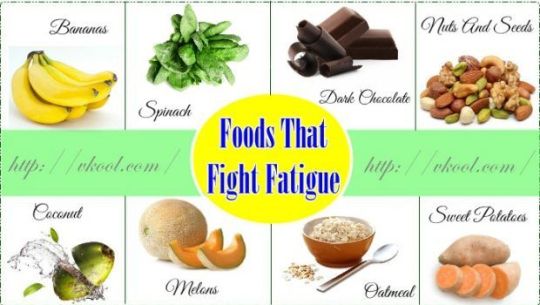#and the more complex combination of the two stimulants hit your system much more slowly
Text
wow I didn’t think reblogging that tea post and then seeing people’s tags would deal me such strong psychic damage. come over I can fix you I can find a tea you will like. “I don’t like tea” how can you say that as a blanket statement when there are so many vastly different kinds of tea. head in hands
#‘it’s like coffee but not good’#while a cup of black tea does have a great deal less caffeine in it than coffee#it also has a stimulant called l-theanine which is NOT found in coffee#and the more complex combination of the two stimulants hit your system much more slowly#which is why tea doesn’t give you jitters like coffee does#anyone who’s like wow I need my coffee to survive but I hate that it makes me nauseous and gives me heart palpitations and bad breath#to you I say. wean yourself off coffee and onto tea!!!!!!!#but WAIT I can keep going. nauseous? ginger tea. sore throat? peppermint contains menthol which works as a numbing agent#green and black teas are both very high in antioxidants#chamomile and lavender do both have a calming affect#BUT WHAT ABOUT THE TASTE I hear you say#IT TASTES LIKE GRASS. try a floral tea or a black tea or chai or Thai tea#ITS SO BITTER you’re either steeping it for too long or the water you’re using is too hot#not to sound like I’m fucking uncle iroh or something I just apparnerlt have strong thoughts and feelings about tea#I can’t handle ppl going ugh I hate tea and it’s like. overbrewed lipton in microwaved tap water.#anyway MY favorites are jasmine and lavender earl grey#and currently I’m really into this corn silk tea my brother bought me at h mart#it’s like gen mai cha but even more#congrats for making it this far into my tea rant tags. if you comment your tastes I can give you a personalized tea recommendation
78 notes
·
View notes
Photo





Foods to Fight Fatigue
By Dulce Zamora
This article is from the WebMD Feature Archive
Tired. Drained. Pooped. No matter how you phrase it, you're beat and need to drum up some energy.
Generally reported by more women than men, sluggishness can be caused by many things. But experts say poor nutrition is a big culprit. "Food is truly our body's fuel," says Cindy Moore, director of nutrition therapy for The Cleveland Clinic. "What we choose as our fuel is going to absolutely impact the performance of our bodies."
Here's what the experts have to say about making sure your body gets the right fuel when it needs it.
The Forgotten Meal
At the beginning of the day, most people dash off to work or school without a thought to their body's dietary needs. Who has time to eat in the morning anyway?
Mary Ellen Camire, PhD, professor of food science and human nutrition at the University of Maine says, "Breakfast is an easy meal to forget. But if people are skipping breakfast and find they're tired by midmorning, then it's time to re-evaluate that habit."
Research shows breakfast improves alertness and concentration, helps shed pounds by preventing overeating during the day, and prevents obesity, diabetes, and heart disease.
To get these benefits and to prepare the body for the day, the Academy of Nutrition and Dietetics recommends eating carbohydrates for energy and protein for endurance. Some quick options include:
Whole grain bagel with cheese
Cereal with fruit and yogurt
Whole grain toast with peanut butter and fruit
Hard-boiled egg sliced into a whole wheat pita
Scrambled eggs, toast, and fruit
Oatmeal with raisins
For the really busy bee, Camire says breakfast bars, frozen omelets, breakfast sandwiches, oatmeal packets, and whole grain cereals in prepackaged plastic bowls are good choices for eating on the go. Be mindful, though, of the sugar and fat content of your morning meal. A study in Pediatrics found that children who ate sugary breakfasts were hungrier and ate more at lunch.
Complex Carbohydrate Charge
Healthy eating shouldn't stop with the morning meal. A well-balanced diet throughout the day is an essential source of sustained energy.
WebMD Feature Reviewed by Brunilda Nazario, MD
on January 09, 2013
Although carbohydrates have gotten a bad reputation, the nutrient is still the body's preferred source of energy, says Dave Grotto, RD, director of nutrition at the Block Center for Integrative Cancer Care in Evanston, Ill. Low-carb diets, he says, initially boost energy but deplete it in the long run.
The best way to maximize the body's potential for energy is to eat a combination of complex and simple carbohydrates. Complex carbohydrates, which are slow burning, should make up the bulk of the carbohydrates we eat, says Grotto. Whole grains and starchy vegetables such as potatoes, squash, pumpkin, and carrots fall into this category.
This does not mean ignoring simple carbohydrates with a faster burn, such as those found in fruits, vegetables, and honey. They can provide an immediate source of energy.
Simple sugars found in candy bars, soft drinks, and cookies can also provide a quick boost, but then a big letdown afterward.
"You are going to get a rise in energy from the original hit of the sugar," says John W. Finley, associate editor of the Journal of Agriculture and Food Chemistry, "but then, particularly for diabetics, sugar can drop below the baseline where it started." Finley says the peak effect of simple sugar normally lasts 30 minutes to an hour, depending on the dose.
Without complex carbohydrates to sustain blood sugars, the body loses steam. "A diet that is based in complex carbohydrates," Grotto says, "seems to have less of that peak and valley of blood sugar effect."
It is also important to make sure your complex carbohydrates have fiber, says Dee Sandquist, a spokesperson for the Academy of Nutrition and Dietetics. "Fiber helps the carbohydrates that we eat to be more slowly absorbed by the body," she says. "So, therefore, the body gets a more balanced release of energy, as opposed to the quick burst of energy."
Many processed carbohydrates, such as white rice, white bread, and pasta, contain little or no fiber, resulting in expending energy at a rapid rate. To ensure you have a food rich in fiber, check the label. A slice of bread should contain 2 to 3 grams of fiber.
WebMD Feature Reviewed by Brunilda Nazario, MD on January 09, 2013 SOURCES:
CDC. Cindy Moore, MSRD, director of nutrition therapy, The Cleveland Clinic.
Mary Ellen Camire, PhD, professor of food science and human nutrition, University of Maine.
American Dietetic Association.
American Academy of Pediatrics. Dave Grotto, RD, director of nutrition, Block Center for Integrative Cancer Care, Evanston, Ill.
John W. Finley, associate editor, Journal of Agriculture and Food Chemistry.
Dee Sandquist, MSRD, spokeswoman, American Dietetic Association.
Mayo Clinic. Institute of Medicine.
Coffee Research Institute.
John Allred, PhD, food science communicator, Institute of Food Technologists.
National Collegiate Athletic Association.
National Center for Drug Free Sport.
WebMD Feature: "Fight Fatigue With Short Energy Breaks."
American Heart Association.
Medline Plus.

Fat Force
Fat has gotten a bad rap, too, but it's one that's not entirely undeserved. "Bad" fats are associated with heart disease, some types of cancer, and some chronic illnesses. The right types of fat, however, are a concentrated source of energy. Saturated fat (found in foods like meat, butter, lard, and cream) and trans fat (found in baked goods, snack foods, fried foods, and margarines) have been shown to increase the risk for heart disease. Replacing saturated and trans fat in your diet with unsaturated fat (found in foods like olive oil, avocados, nuts, and canola oil) has been shown to decrease the risk of developing heart disease.
In order to strike the right balance, choose polyunsaturated fats such as vegetable oils and seafood and monounsaturated fats such as olive oil, nuts, and seeds. The unsaturated variety can help lower "bad" LDL cholesterol.
Protein Power
Fats and carbohydrates may supply the body with energy, but protein helps regulate the release of that power. Protein maintains cells, assists in growth, transports hormones and vitamins, and preserves lean muscle mass. Muscles and many hormones are, in fact, made up of protein. You need proteins for your immune system. So replenishing your body's source of the nutrient is very important.
Good sources of protein include meat, poultry, fish, eggs, beans, nuts, soy, and low-fat dairy products. When you eat these types of foods, your body breaks down the protein that they contain into amino acids (the building blocks of proteins). Some amino acids are essential, which means that you need to get them from your diet, and others are nonessential, which means that your body can make them.
In diets where the body does not get its usual fuel of carbohydrates and fat, protein provides the body energy.
The Weight of Water
Two-thirds of your body is made up of water. Without it, you could only live a few days. The fluid helps control body temperature through sweat, moves food through the intestines, and greases the joints. It's also an essential ingredient in the production of energy molecules.
WebMD Feature Reviewed by Brunilda Nazario, MD on January 09, 2013
"Dehydration is one of the leading causes of a lack of energy," says Grotto. If you're not well hydrated, your body puts its resources into maintaining your water balance instead of into giving you energy.
Everyone's water needs vary. In February 2004, the Institute of Medicine released a report indicating most people meet their daily hydration needs by using thirst as their guide. In general, the Institute's expert panel recommended that women get about 11 cups of water from food and drink each day, and men get about 16 cups daily. This may seem like a lot of liquid, but 20% of it comes from food and the other 80% from drinking water and other beverages. .
To adequately get your hydration needs, particularly on a hot and humid day, the Academy of Nutrition and Dietetics suggests carrying around a bottle of water, or replacing your afternoon soft drink with water. Frozen juice bars or icy treats are also a good idea.
Water is especially important after exercise, with certain medicines, and with a high-fiber diet. Your fluid intake should be adjusted to how much water you're losing, says Finley. "A simple thing like stopping at a drinking fountain when you walk by one is a good idea."

Caffeine Fix
More than half of Americans reach for a coffee cup every day, and 25% drink it occasionally, reports the National Coffee Association. This should come as no surprise as there are those who swear they cannot function without the caffeine.
The compound can be found not only in coffee but in tea, soft drinks, chocolate, and herbs as well.
John Allred, PhD, a food science communicator for the Institute of Food Technologists, says stimulants like caffeine exaggerate the effect of natural hormones like adrenaline. "They get your heart pumping faster, you respire faster, and that gives you a stimulated feeling," he says, noting the results usually last no more than two hours.
Psychology tests have shown a combination of caffeine and sugar can improve alertness and performance. "But then it wears off, and then you get a little bit of a slump afterward," says Camire. The high-low effect of caffeine, she says, is not as pronounced as it is in sugar, but it is significant enough that frequent users often experience headaches without the substance.
The effect of caffeine varies from person to person. Some people need a few cups before experiencing stimulation; others feel shaky or jittery with one serving.
Caffeine can also interfere with sleep, particularly if it is consumed in the late afternoon. The lack of shuteye could obviously affect one's energy level. To resolve this issue, Camire recommends switching to decaffeinated beverages by about 3 p.m. She also suggests gradually cutting back on caffeinated drinks, especially since they may have a dehydrating effect.
Beating the Doldrums
Food can raise or diminish your body's energy levels. If you are eating healthy and are still tired, try changing the frequency of your meals. Some people find they get more of a boost with several small meals throughout the day, while others prefer the concept of three square meals daily. There's no right or wrong way, says Sandquist, noting that everyone's energy needs differ.
The amount of food you eat can also make a difference. If someone overeats constantly, he or she tends to gain more weight and become lethargic, says Finley. "It's like the snowball rolling down the hill," he explains. "As [overeaters] get more overweight, they have less energy, and then they exercise less and don't burn the calories."
Other dietary reasons for fatigue include too much alcohol (which is a depressant) and lack of certain vitamins and minerals. Low iron is a common problem for women.
If you still find yourself sluggish with a well-balanced diet, then a visit to the doctor may be in order. Certain diseases, medications, stress, and inadequate sleep and exercise can contribute to fatigue.

http://www.webmd.com/food-recipes/features/foods-fight-fatigue#1
0 notes